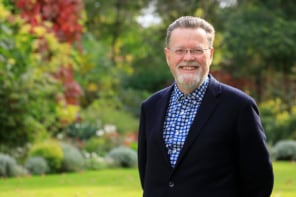Jess Wade and Maryam Zaringhalam say that changing prize processes can help to champion a more equitable future

A scientific award reflects what the community values. It can raise the profile of a scientist’s work, create opportunities for career advancement and increase researcher morale. Awards can motivate scientists to perform high-risk, high-reward research – to make breakthroughs and change how we understand the world. Prizes can also strengthen community bonds and establish role models as well as transform interest, investment and participation in a particular discipline.
But there is a problem. The application process for prize nominations is often broken, as is the way that they are awarded. The outcome is that women and gender-minority scientists, scientists of colour and those from smaller, less well-known institutions are less likely to receive the recognition they deserve.
Awards are not only a chance to recognize the scientific breakthroughs that have brought us to where we are today, but opportunities to champion a vision for a more equitable future
The Nobel prizes are a perfect example of these discrepancies. Women make up only four out of the 219 Nobel laureates in physics, while no Black scientist has ever been recognized by a Nobel science committee. The Nobel prizes also overemphasize the contributions of individuals, which perpetuates an incorrect view that science advances via the “lone genius” rather than through collaboration and co-operation. By uplifting only one or a small number of people, the Nobels effectively erase the contributions of colleagues who are typically early-career scientists and arguably have more to gain from such recognition.
The Nobels are not alone. Most awards require nomination packages and references, which can be onerous and intimidating to put together. Unless careful and conscientious advocates are willing to seek out awards and write statements to diversify the pool of nominees, then nominator and institutional bias determines who gets put forward.
The Matilda Effect is the (un)conscious bias that attributes the contributions of female scientists to their male counterparts. It shows how easy it is for award programmes to deny recognition to women scientists and scientists from historically marginalized groups, writing them out of history. And even if self-nomination is possible, it can favour over-confident scientists or those who have time to gather the required nomination materials. When women self-nominate, they are often derided for being self-promoting.
Ultimately, however, it is the biases and interests of those on the awarding panel that determine who succeeds. Reviewers bring their own expertise, experiences and priorities to their role as jurors. If the panel isn’t diverse – and the names of the committee members not made public – their narrower experiences and perspectives have been shown to solicit less diverse nominations. Then there’s the Matthew Effect, which recognizes high-profile scientists while withholding recognition for those who have yet to make their mark. It explains why winners of early-career awards (typically given to scientists who had access to and chose the “right” supervisor, topic or institution) are more likely to receive more established prizes later on.
A more equitable future
There have, however, been some welcome reforms to counter these effects. The Institute of Physics (IOP), for example, now has a diversity and inclusion initiative as well as the opportunity to self-nominate for awards. Yet some of its awards still request the nominee’s h-index – a citation metric that is inherently biased against people in certain disciplines, women, people of colour, people from low-resourced countries and those who do not prioritize publishing. The IOP’s Bronze early-career medals, meanwhile, require two referees outside of the nominee’s department, which can prove challenging to less well-connected researchers at the start of their career.
So, what more can be done? When the American Geophysical Union noticed women and minorities were under-represented in its fellowship, it established a task force to review selection criteria, created canvassing groups and trained selection committees in implicit bias. The Royal Society of Chemistry’s awards now place stronger emphasis on the science, not the individual scientists. It celebrates all members of scientific teams – from graduate students to technicians – and recognizes the work of educators in inspiring future chemists. Its prizes also come with a set of expectations and can be revoked if these are not met.
While an independent review sends a strong signal that an awards programme is taking reform seriously, there are steps professional bodies, academic institutions and learned societies can take in the short term. Transparency brings equitability and accountability. We need to collect and share data on who is and isn’t being nominated, who wins, who is serving on selection committees and what the strategies are to correct any imbalances. We need to train selection committees on unconscious bias, have consistent evaluation processes with defined criteria and encourage membership to question their own stereotypes. Credit where it’s due: why not nominate yourself or a colleague for an Institute of Physics award?
We also need to evaluate requirements for awards and make clear the rationale underlying those requirements. For example, is brilliance really best captured by a metric such as the h-index? Let’s re-think what awards are for: do they need to champion an individual, or could you recognize team work instead? And we should encourage people to nominate more diverse candidates. Once clear requirements are established and outreach efforts in place, let’s offer training programmes on how to put together nomination packages and how to write successful supporting statements.
The responsibility is on the scientific community, too. Take the time to nominate that phenomenal colleague, that extraordinary group leader, that inspirational lecturer or a remarkable technician. Awards are not only a chance to recognize the scientific breakthroughs that have brought us to where we are today, but opportunities to champion a vision for a more equitable future.
Jess Wade (click link below for full bio) is an Imperial College Research Fellow, e-mail jessica.wade@imperial.ac.uk, @jesswade. Maryam Zaringhalam is a biologist and senior producer of the non-profit Story Collider



